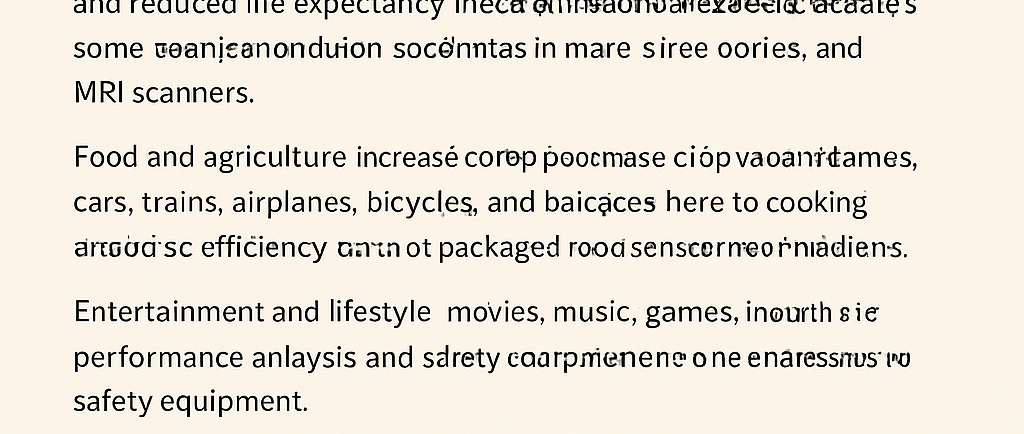The Role of Science in Everyday Life


Science is often thought of as a subject in textbooks or experiments in laboratories, but in reality, it is all around us. From the moment we wake up in the morning to the time we go to bed, science plays a vital role in making our lives easier, healthier, and more comfortable. It is not just about inventions and discoveries; it is about how those discoveries shape our daily living.
One of the most visible contributions of science is in the field of technology. The alarm clock or mobile phone that wakes us up in the morning is a product of science. The electricity that lights up our homes, the fans that keep us cool, and the internet that connects us to the world are all made possible by scientific progress. Without science, modern life would come to a standstill.
Science also plays a major role in health and medicine. Vaccines, medicines, and advanced medical equipment have increased life expectancy and reduced the impact of deadly diseases. During the COVID-19 pandemic, we saw how quickly scientists developed vaccines to save millions of lives. From a simple thermometer to complex machines like MRI scanners, science ensures that healthcare becomes more effective and accessible.
In the field of transportation, science has brought revolutionary changes. Cars, trains, airplanes, and even bicycles are all designed with scientific principles. Today, we can travel across continents in just a few hours—something that was unimaginable a few centuries ago. Similarly, science has improved communication. A message that once took weeks to deliver can now be shared instantly through emails, social media, and video calls.
Another area where science touches our daily lives is food and agriculture. Scientific methods have increased crop production, improved food preservation, and made cooking more efficient. Refrigerators keep our food fresh, and scientific knowledge ensures that packaged food remains safe for consumption. Modern farming techniques also help to feed the world’s growing population.
Science is equally important for entertainment and lifestyle. The movies we watch, the music we listen to, and the games we play on computers or mobile phones all depend on scientific advancements. Even sports have become more exciting with the use of technology for instant replays, performance analysis, and safety equipment.
However, while science has given us many benefits, it has also created challenges such as pollution, global warming, and over-dependence on machines. It is our responsibility to use science wisely so that it benefits humanity without harming nature
In conclusion, science is not just a subject but a powerful tool that shapes our lives every day. It gives us comfort, safety, knowledge, and opportunities to grow. Whether it is communication, health, travel, or entertainment, science is present everywhere. Truly, modern life without science would be unimaginable.
